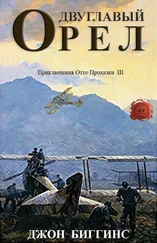Thus the days passed idly, sitting on that sun-scorched field trying to find what shade we could as the hot, irritating Carso wind scurried straw and dust along the ground and rattled the tent-sides. There were few diversions for us except reading and playing cards—and listening to Leutnant Szuborits’s gramophone in the tent next to mine.
He had a rather nice wind-up portable gramophone which his mother had bought him; but records were in short supply in Austria by 1916 (the blockade had stopped the importation of the shellac from which they were made and no substitute had been found), and anyway the Leutnant’s musical tastes were limited. So it was constant, maddening repetition of the duet “Sport und immer Sport” from a failed Lehar operetta of 1914 or thereabouts—called Endlich Allein if I remember rightly—with Hubert Marischka and Mizzi Gunther squawking away like an egg-bound hen. It was an intensely irritating piece of music: one of those maddeningly catchy marschlieder so beloved of Viennese light-music composers about 1913—14, when the sudden Europe-wide vogue for deep breathing and general outdoor heartiness had spread to affect even dingy, sedentary old Austria. It was to turn up again many years later (I recall) as “Frei und Jung Dabei” when Lehar tried reviving his old operetta, only to see it sink once more to well-merited oblivion after a couple of nights.
Records in those days tended to wear out very quickly, but this one seemed to be made of tungsten carbide: just went on and on and on playing until I was tearing my hair out in tufts and trying not to look at my pistol in its holster hanging on the tentpole. And that is how I remember the summer of 1916 on the Isonzo Front: the sun’s glare and the nagging moan of the wind and the sound of aircraft engines; the fretful flapping of tent canvas and Mizzi Gunther warbling scratchily through “Sport und immer Sport,” accompanied by the ever-present rumbling orchestra of high explosive to westwards.
Apart from the affair of the captured SP2, the only diversion of those early days of August was the arrival of a new Chefpilot to replace poor Rieger. He arrived by staff car one morning just after breakfast. I was the only one around to meet him, and as he stepped down with his bags I thought that he was surely one of the pleasantest-looking men I had ever seen: in his early twenties, of medium height, gracefully formed, with fine light brown hair and gentle, rather melancholy blue eyes such as a poet or composer might possess. He gazed at me sideways, smiled politely in greeting and saluted. Then he turned his head slightly—and I saw that most of the left side of his face had gone, cheekbone and temple replaced by a tortured confusion of lumps and puckered scar tissue surrounding an eyeball which looked to be in danger of tumbling out on to his cheek. Despite myself I winced slightly and tried not to look. My wife Elisabeth had worked for the past two years in a specialist facial-injuries unit at the Vienna Medical School, and she had shown me a good many spine-crawling photographs of “before.” Well, this was clearly one of the “after” cases: one of those less severely damaged casualties whose face the surgeons had managed to rebuild sufficiently for an army medical board to class him once more as “dienstauglich.” He shook my hand—no doubt noticing that, like everyone else he met, I was trying not to look at his face—and introduced himself as Oberleutnant-Feldpilot Svetozar von Potocznik.
I got to talk with Potocznik that evening and over the next few days, and I must say that I found him at first to be one of the more engaging people I had so far encountered: tactful, humorous, modest and endowed with great precision and sensitivity of expression. He was also quite remarkably intelligent. Little by little I learnt his story. He had been born in 1894 in the small town of Pravnitz on the southern edge of Carinthia, where his father was chemistry master of the local grammar school. And of course, the gymnasium at Pravnitz in the 1900s had become a cause celebre throughout the Austro-Hungarian Monarchy because of a bitter dispute over the language of instruction in the school, now that the local Slovene population were demanding equality with German-speakers. This wretched dispute had dragged on for years, with the school closed down for long periods because of riots and boycotts and blockades, punctuated by outbreaks of pandemonium in the Vienna Reichsrat as the German and Slovene deputies from Carinthia hurled inkpots at one another. At least three k.k. Ministers for Education had resigned because of the Pravnitz gymnasium affair. At last, in 1908, to the inexpressible disgust of German Nationalists throughout the entire Monarchy, Vienna had given in and made the school officially bilingual.
But while this nonsense had been going on, events had been moving for the Potocznik family in another direction. Always an ingenious man, Herr Doktor von Potocznik had used his long spells of enforced leave to perfect a revolutionary new process for synthesis of ammonia. In the end he had managed to patent it and sell it to the CIVAG syndicate, who made it a condition of purchase that he should move to Germany to supervise the setting-up of the first process line. So in 1909 the family had sold up and moved to Mannheim, bidding a not very affectionate farewell to the decrepit old Austrian Monarchy which had given in so easily to the insolent demands of its lower races.
Thus young Potocznik had grown up in Germany. An outstanding pupil and talented poet, he had excelled at music, though his interests had turned towards theology and moral philosophy. He had also, about 1910, become involved with the Wandervogel, the curious movement among the idealistic German young which rejected the horsechair-stuffed values of the Wilhelmine Reich and instead set out in search of the authentic and the natural: birdsong in the forest, church bells in the Alpine valleys, rucksacks and lederhosen and guitars around campfires, running barefoot in the morning dew and all the rest of the nonsense which (I must confess) made me thankful for a youth spent playing billiards in the smoke-filled ambience of Austrian provincial coffee-houses.
Potocznik had been due to enter Gottingen University in 1914 to study philosophy. But the war had got there first. Like millions of other German adolescents, he had rushed to the colours filled with a burning desire for self-sacrifice in this war, which (they believed) was not about territory or dynastic claims but about power and youth and the force of the spirit; a near-religious crusade to give Germany her rightful place in the world and break the shackles forged for her by the old nations. There had been official reservations about his nationality of course: he was still technically an Austrian subject. But he was eventually given permission to join the German Army, “pending an administrative decision.” He enlisted in the Academic Legion and was flung almost immediately, after the sketchiest of training, into the fighting at Ypres, given the task of storming the village of Langemarck. Eighteen thousand of them had set out across the water meadows that morning, singing Beethoven’s “Ode to Joy” as they advanced. Less than two thousand were to come back. “The Massacre of the Innocents,” they called it. A patrol had found Potocznik next day among the stacks of corpses, the left side of his face smashed by a rifle bullet.
He had spent the next six months in hospital in Germany, and had then been transferred to the specialist facial-injuries unit being set up by Professor Kirschbaum and his colleagues at Vienna University. My wife Elisabeth had been one of the sisters on his ward. They had patched him up after a fashion, rebuilding his cheekbone with bone-grafts and creating a metal bridge for his upper jaw. But plastic surgery was a primitive business in those still-experimental days before antibiotics, and the surgeons had in the end only been able to restore function, not appearance. But another unpleasant surprise awaited him in mid-1915: the Imperial German Minister for War—having probably concluded that someone with a name like Svetozar von Potocznik was not an acceptable soldier of the Reich—had not been pleased to grant his application to serve in the German armed forces. To my surprise, though, I found him not to be too upset about this.
Читать дальше












